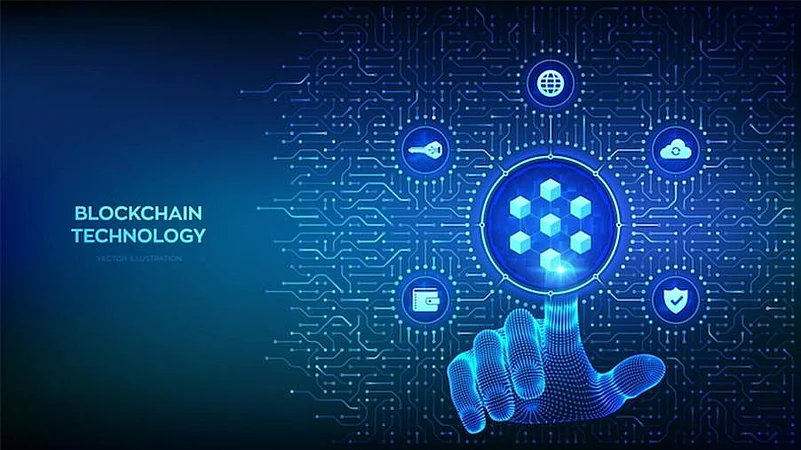In a constantly evolving world driven by blockchain and decentralized systems, one very fundamental question continues to resurface—how do we prove that we are indeed human beings in virtual spaces? As crypto worlds grow and open the gates to new ideas like Universal Basic Income (UBI) and decentralized governance, proof that each contributor to the system is a real, unique individual has become more than a technical issue. It has now reached the level of a societal problem. The concept of "Proof of Humanity" is where identity verification, financial inclusion, and anti-manipulation in online communities meet. To understand it is to unleash the future of fair and just digital economies.
The Problem: Digital Manipulation and Fake Identities
The internet, as great as it is, has long been plagued by a big issue—Sybil attacks. Such attacks occur when a single actor creates multiple fake identities so that he can have an unjust overrepresentation within a system. In blockchain networks, Sybil attacks can potentially undermine voting systems, exploit reward mechanisms, and hijack the integrity of decentralized protocols. When all identities are treated equally in a permissionless network, fake users can bias results that are supposed to be democratic or community-driven.
For example, if a blockchain app incentivizes tokens for user activity, a user with 1,000 fake accounts could capture an out-of-proportion share. If a decision based on a one-per-user vote determines governance, fake identities can control the decision. This raises a basic question: how can a decentralized platform establish who is real and unique without invading privacy or requiring central authorities?
Proof of Humanity: A New Frontier for Identity
The idea of Proof of Humanity (PoH)—a decentralized means of ascertaining all individuals in a system are indeed real humans and will not register multiple times. It's not revealing your name; it's showing you are someone, without proving who that somebody is. It's an internet community paradigm shift, especially for decentralized finance (DeFi), governance, and social media.
Proof of Humanity protocols are usually a mixture of social verifications and technology. Players can submit an image or video, undergo verification by other users, or use biometric and zero-knowledge proof systems that can verify uniqueness without divulging sensitive information. By establishing a network of human-verified humans, systems can build more balanced reward systems, secure voting systems, and spam-free social systems.
Universal Basic Income and the Crypto Nexus
One of the most highly debated uses of Proof of Humanity is in Universal Basic Income (UBI)—a model where all verified individuals are given a periodic payment simply for being alive. In crypto, UBI is typically paid out through smart contracts to verified individuals with an aim to achieve economic equality and support individuals who may not have access to traditional financial infrastructure.
In contrast to government welfare programs, crypto-based UBI is decentralized, borderless, and (hypothetically) censorship-free. But for it to be truly effective, the platform must be Sybil-resistant. Without any adequate identification checks, bad actors would be free to sign up repeatedly and absorb resources meant for other individuals. The success of decentralized UBI therefore hinges exclusively on strong, privacy-boosting proof-of-humanity systems.
UBI is not just an economic tool. It is also a social experiment that tests the existing ideas of value, work, and belonging. Where banking services are limited and state support is precarious, crypto-UBI offers a new paradigm—but only if it is built on trust, and trust requires proof of humanity.
Ethical and Social Implications
Designing a system that shows personhood without divulging identities is not just a technical issue—it's a philosophical one. Who determines the criteria for humanity? What about marginalized groups who lack access to verification systems? Are these systems potentially exploitable or manipulable in the long term?
Decentralized identity platforms must prioritize inclusivity, equity, and openness. If the platform systematically excludes certain segments of society—because they are not connected to the digital world, have poor language skills, or are geographically disadvantaged—it reflects the same injustices it aims to eradicate. Similarly, over-surveillance or invasive verification processes may repel end-users and undermine the decentralization ethos.
The Road Ahead: From Concept to Culture
Proof of Humanity is not a protocol—it's a culture. The more we venture into the digital realm, the less separated our physical and online lives become. Identity in this new world doesn't equate to credentials or documents. It's about existing, participating, and being held responsible.
For the crypto world to truly democratize finance and governance, it must solve the identity problem. Proof of Humanity offers a path forward, one that marries technological innovation with moral purpose. It allows us to reimagine systems where people—not bots, not scammers—can engage, earn, and influence.
As we build toward such a future, the question is: Can we create a digital world that can recognize and value each human as a valued actor, not merely a user, but an esteemed member of a world citizenry? That will be up to how effectively we unite evidence of humanity with intentional design.














